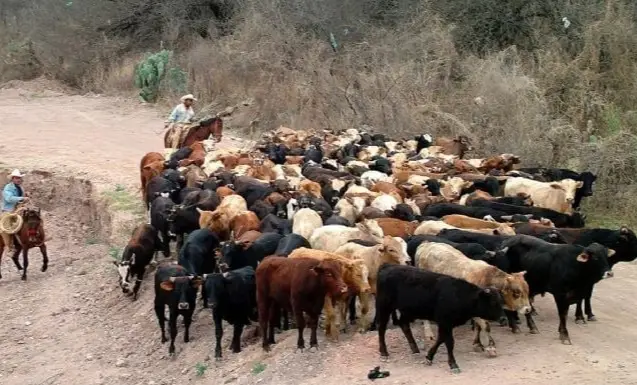Mexico was aware of the potential implications of the closure of the sterile fly factory in Chiapas and that a nationwide screwworm crisis could generate an economic impact of at least 8.29 billion pesos annually, according to an official document obtained by Proceso.
In 2020, the government of Andrés Manuel López Obrador conducted a technical study on the consequences of a possible resurgence of this pest affecting livestock. However, no measures were taken to address this scenario, which is currently affecting the country’s livestock industry.
Livestock associations warn that President Claudia Sheinbaum’s administration also acted negligently and that she did not notify them in advance of the US border closure.
The Mexican government was aware of the health fragility since the 2013 closure of the sterile fly production plant in Chiapas, which had replaced the plant in Mission, Texas, closed in 1981.
Assuming the outbreak spread throughout the country and the dependence on inputs from the United States, the document prepared by the Ministry of Agriculture and Rural Development (SADER) states, an economic loss of 8.29 billion pesos at current prices for that year was estimated.
“The entry, establishment, and spread of the cattle screwworm (Cochliomyia hominivorax) in our country may generate additional costs for cattle production, which, based on the simulated scenarios for 2019, represent 8.29 billion pesos, that is, a 2% increase in estimated production costs,” reads the document titled “Analysis of the potential impact of the screwworm in Mexico.”
This situation would directly impact meat and milk production, which generated revenues of 219.209 billion pesos in 2019. It also jeopardizes the export of meat and hides, valued at $914 million at the end of that same year.
Adjusting this figure for accumulated inflation, the real amount rises to 10.674 billion pesos, according to calculations made by Proceso.
The same analysis warned that if the pest were to become a problem in the United States, annual losses would reach $1 billion.
In the scenarios predicted by Sader, it states that after 20 years, the presence of the pest “would reduce estimated profits in beef production by 23%, and with it, potential losses would be expected throughout the chain.”
Regional risks were also recognized, especially by countries in the center and south of the continent, such as Colombia, Cuba, Guyana, Haiti, Jamaica, the Dominican Republic, Venezuela, Brazil, Suriname, Bolivia, Uruguay, and Argentina; Peru, Panama, and Ecuador.
The health alert became an outbreak in 2025
With the end of López Obrador’s six-year term, the threat, which seemed distant, became a reality. Throughout 2025, health authorities have reported confirmed cases of the screwworm in Oaxaca and Veracruz.
The larva of the “coquerel,” as it is also known, devours the living flesh of warm-blooded animals, including humans, causing myiasis, a disease that can be fatal if left untreated.
“The flies have an exceptional mobility capacity; they can travel 10 to 20 kilometers in tropical climates with a high density of animals and up to 300 kilometers in less than two weeks,” warns the technical study.
In response to the outbreaks, the United States Department of Agriculture (USDA) ordered the immediate suspension of cattle, horse, and bison imports from Mexico in May, paralyzing one of the most dynamic livestock export channels.
According to the National Agricultural Council (CNA), this measure is hitting the north of the country hard, where Sonora and Chihuahua transport more than 5,700 head of cattle to the United States daily.
At an average price of $2,000 per head, the suspension represents a daily loss of $11.4 million.
Demands reactivation of the Chiapas plant
Beyond simply closing borders, the CNA called on the Mexican government to increase the production and release of sterile flies to curb the plague.
“Mexico has the technical capacity and institutional commitment to guarantee agricultural health. Now more than ever, real cooperation is needed,” the organization stated.
However, the strongest demand came from the livestock sector in Coahuila, where associations accuse Claudia Sheinbaum’s federal government of failing to prevent and failing to provide timely information about the border closure.
“We will not allow the federal government’s failure to implement such a noble activity as livestock farming to be lost due to its failures,” they stated in a public letter released on May 13.
In response to the accusations, during the morning press conference on May 13, the head of the Ministry of Agriculture, Livestock and Livestock (SADER), Julio Berdegué, asserted that Mexico was not responsible for the outbreak, as the original source was in the south of the continent.
“The United States was responsible, and it got out of control,” he said, while calling for the reinstatement of the Chiapas plant.

Source: proceso




